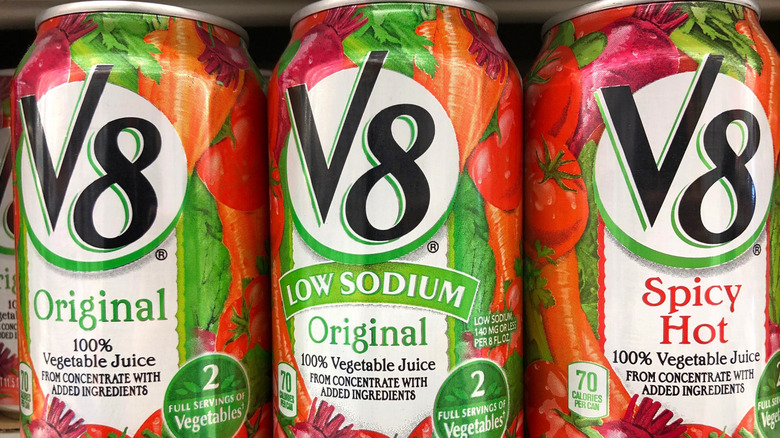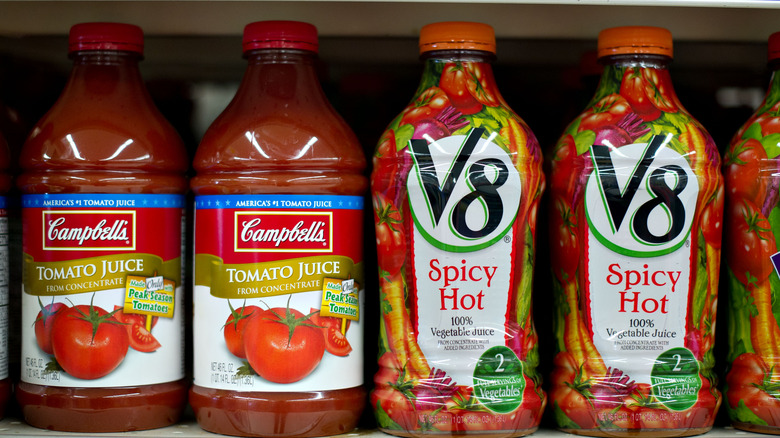In A Way, V8 Juice Hasn't Changed Since 1933
If you've ever struggled to find a way to add more greens into your diet, there's a good chance someone has recommended you reach for a V8. The savory, vegetable-derived juice has been known since the 1940s for its claim of containing "two full servings of vegetables" in each glass, a marketing campaign that has earned V8 a spot in the public consciousness.
The juice first hit the market in 1933 as Vege-min, a precursor to modern V8 that was mostly tomato-based. Nine decades later, V8 is still made of the same blend of eight vegetables it contained during its Vege-min days. It's nice to know that time doesn't change everything.
While keeping the components of the famous juice consistent for 90 years is commendable in itself, it turns out V8's medley of eight vegetables isn't the only thing the company has kept the same. According to Campbell's, the parent company of V8 since 1948, some of the celery V8 uses in its products has been grown at the same family farm in Michigan for over 70 years.
V8 has expanded its product line beyond vegetable juice
While V8 has chosen to keep many of the core elements of its product unchanged throughout much of its history, the company has still given consumers plenty of variety in the form of a wide range of spinoff products, including some that don't include as many vegetables as you may expect.
Campbell's released its V8+Hydrate line of fruit-flavored soft drink alternatives in 2018. Notably, the company claims these drinks are the first to feature sweet potato juice as a base. Another V8 product that relies on fruits for its core flavor profile is V8+Energy, which uses green and black teas as a source of caffeine.
While V8's range of unexpected new products may be exciting for fans of the franchise, industry data shows that the iconic vegetable cocktail and other similar products may increase in popularity. Market analysts at Mordor Intelligence have predicted the global vegetable juice market will increase by 7.3% by 2027, which may mean more V8 products could be hitting grocery shelves in the not-too-distant future. This might be especially great news for people who struggle to cook vegetables at home and prefer to drink their veggies.

